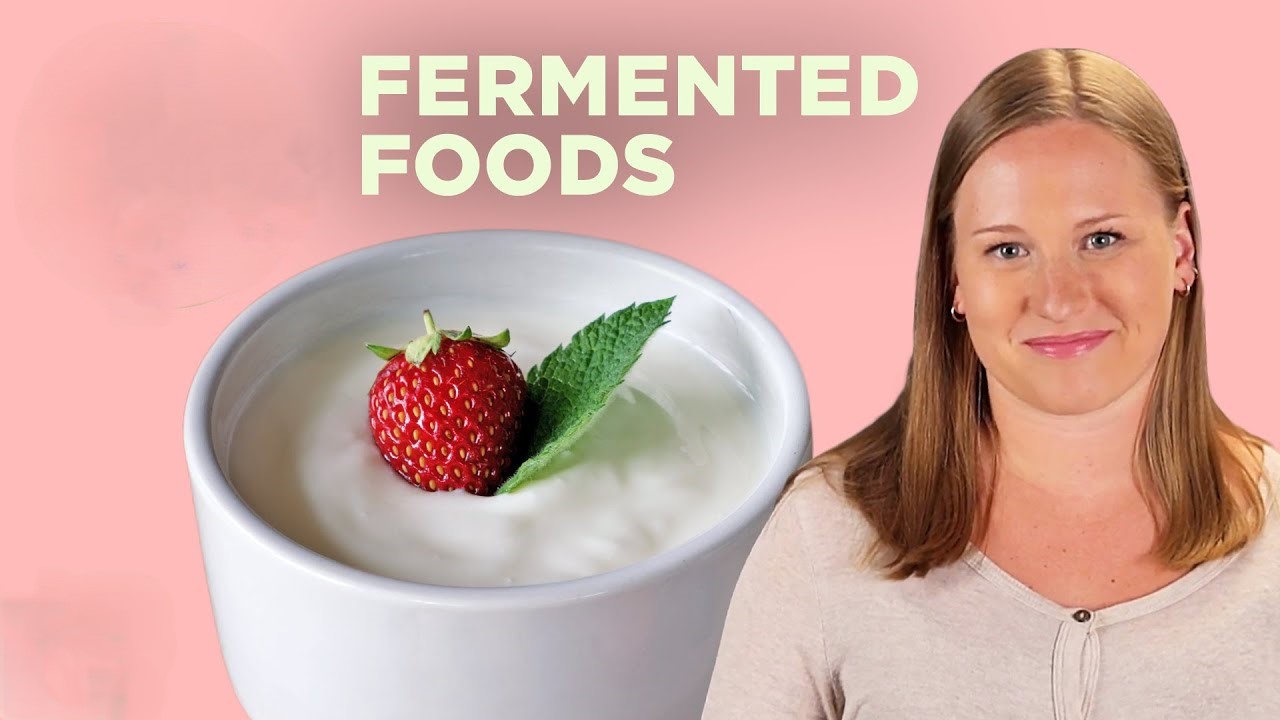Introduction
Fermented foods, like kimchi, sauerkraut, yogurt, and kombucha, have become very popular because they are good for your health, especially your gut. But their benefits go beyond just digestion. These foods can also help your immune system, skin, mental health, and even your heart.
This article will talk about why fermented foods are so good for you and how to add them to your diet. Let’s take a look at some popular fermented foods and how they can make you feel better!
What Is Fermented Food?

Fermented foods are those that have undergone a natural process where microorganisms like bacteria, yeasts, or molds break down sugars and starches in food, creating beneficial compounds like probiotics. This process not only preserves the food but also enhances its nutritional profile.
During fermentation, beneficial bacteria (also known as probiotics) are produced, which support the gut microbiome, the collection of microorganisms that reside in your digestive system. These probiotics have been shown to promote gut health and improve digestion, but the benefits of fermented foods go far beyond just the gut.
Health Benefits of Fermented Foods

1. Improved Immune System
A lot of your immune system is in your gut. The bacteria in your gut help protect you from harmful germs. Eating fermented foods can add more good bacteria to your gut, which helps your body fight infections and stay healthy.
Tip: Try adding kefir, kombucha, or miso soup to your diet to help strengthen your immune system.
2. Better Skin Health
Your skin can show how healthy your body is. The probiotics in fermented foods help balance your gut and reduce body inflammation, which can help clear up skin problems like acne or eczema. Fermented foods also have antioxidants and vitamins that support healthy skin.
Tip: Drink kombucha or eat kimchi to support your skin from the inside out.
3. Mental Health and Mood Improvement
Your gut is closely connected to your mind. The good bacteria in your gut can affect your mood, stress, and even how well you think. Eating fermented foods helps your body make serotonin, a chemical that helps you feel happy.
Tip: Adding yogurt or sauerkraut to your meals can help improve your mood and mental health.
4. Heart Health
Fermented foods can help your heart by lowering bad cholesterol and reducing inflammation. Some fermented foods, like miso, can help lower blood pressure. Foods like tempeh and miso are also full of fiber and antioxidants that are good for your heart.
Tip: Add tempeh, miso, or kimchi to your meals for a heart-healthy boost.
5. Better Nutrient Absorption
Fermentation makes food easier to digest and helps your body absorb nutrients better. For example, yogurt helps your body absorb calcium more easily, and sourdough bread has more nutrients than regular bread.
Tip: Add fermented grains like sourdough or vegetables to your diet to help your body absorb nutrients.
The Role of Fermented Foods in a Healthy Diet

Fermented foods play an important role in maintaining a healthy diet. They are a great source of probiotics, which are beneficial bacteria that support digestive health. Including fermented foods in your meals can help regulate digestion and reduce symptoms like bloating, constipation, or indigestion. They also make nutrients more bioavailable, meaning your body can absorb them better. Many fermented foods, like kefir and miso, are also rich in vitamins, minerals, and antioxidants, adding extra nutrition to your meals. As awareness about gut health grows, more people are incorporating fermented foods into their daily diets to promote overall wellness.
Popular Fermented Foods to Include in Your Diet

1. Kefir
Kefir is a fermented dairy drink that’s packed with probiotics and beneficial bacteria. It’s similar to yogurt but thinner in consistency, making it easy to drink. Kefir is rich in calcium, protein, and B vitamins, and it supports gut health and immune function.
2. Kimchi
Kimchi is a traditional Korean dish made from fermented vegetables, typically cabbage and radishes, flavored with chili peppers, garlic, ginger, and other spices. It’s loaded with probiotics, fiber, and vitamins, and it supports digestion, boosts immunity, and promotes overall health.
3. Sauerkraut
Sauerkraut is made by fermenting finely chopped cabbage with salt, creating a tangy, crunchy side dish. It’s rich in probiotics and vitamin C, and it can help improve digestion and support the immune system.
4. Miso
Miso is a Japanese seasoning made from fermented soybeans, and it’s often used to flavor soups, sauces, and dressings. It’s high in protein, vitamins, and minerals, and it’s an excellent source of probiotics that support gut health.
5. Tempeh
Tempeh is a fermented soy product that’s firm in texture and packed with protein. It can be used as a meat substitute in various dishes and is a great source of B vitamins, fiber, and probiotics.
The Challenges of Including Fermented Foods in Your Diet
While fermented foods have many benefits, they can also come with some challenges. For beginners, the taste and texture of fermented foods might take some getting used to, especially if you’ve never tried them before. Fermented foods can be tangy, sour, or even spicy, which may not be to everyone’s liking. Additionally, some fermented products, like kombucha or sauerkraut, can be high in sodium or sugar, so it’s important to consume them in moderation. Another challenge is that fermented foods are not always easy to find, especially in areas where they’re not as common. However, with a little effort, you can easily incorporate these foods into your diet and discover new ways to enjoy them.
The Future of Fermented Foods: What’s Next for This Ancient Tradition?

The future of fermented foods looks bright as more people turn to natural, gut-friendly options for improving their health. As knowledge about the benefits of fermentation grows, we can expect to see more fermented products on the market, from new flavors of kombucha to plant-based dairy alternatives like fermented coconut yogurt. Advances in fermentation technology are also making it easier to produce fermented foods on a larger scale, increasing availability and accessibility. In the coming years, fermented foods may become a staple in more households, helping people to improve their gut health, immunity, and overall well-being with ease. The future of fermentation is full of exciting possibilities for health-conscious eaters everywhere.
Comparative Table: Popular Fermented Foods and Their Benefits
| Fermented Food | Key Benefits | Nutrients |
|---|---|---|
| Kefir | Supports gut health, boosts immunity, improves digestion | Calcium, protein, B vitamins |
| Kimchi | Aids digestion, promotes gut health, boosts immunity | Fiber, vitamins A, C, and K, probiotics |
| Sauerkraut | Improves digestion, boosts immunity, rich in antioxidants | Vitamin C, probiotics |
| Miso | Supports digestion, rich in protein and probiotics | Protein, B vitamins, minerals, probiotics |
| Tempeh | High in protein, supports gut health, excellent meat substitute | Protein, fiber, B vitamins, probiotics |
Conclusion
Fermented foods are more than just good for your gut they offer a wide range of benefits that support overall health, from boosting immunity and skin health to improving mental well-being and heart health. By incorporating these delicious and nutritious foods into your diet, you can experience the many health benefits they offer. Whether you enjoy kimchi, kefir, or miso, there’s a fermented food for everyone.




